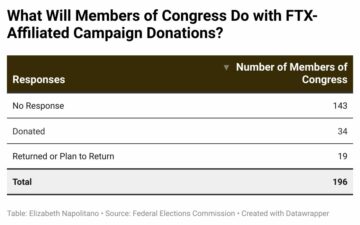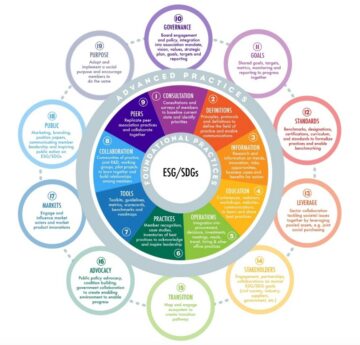Research | Feb 7, 2024

 Image: BoE Staff Working Paper No. 1,059
Image: BoE Staff Working Paper No. 1,059Open Banking Boosts Competition and Productivity, Transforming Financial Services Landscape
The Bank of England recently published Staff Working Paper No. 1,059 titled “Customer data access and fintech entry: early evidence from open banking” The research on Open Banking (OB) policies provides substantial evidence that implementing OB can indeed improve competition and productivity within a country and offers valuable insights into its impact on fintech entry, consumer benefits, and SME outcomes.
Countries with Open Banking ‘Have More’
One of the most striking outcomes of OB policies is the substantial increase in fintech entry and innovation. The study reveals that the adoption of OB policies has led to a one-third increase in venture capital-backed fintech financings and a doubling in the investment amounts. This surge in fintech activity is indicative of a more competitive environment driven by the availability of customer financial data, spanning a wide array of financial products, including financial advice applications, credit services, payments, and regulatory technology (regtech), underscoring the versatility and utility of OB data across the financial ecosystem. This innovation is not limited to fintech startups but extends to existing financial institutions that adapt to the new competitive landscape by offering more tailored and efficient services.
See: Feds Promise Open Banking Laws in 2024 and to Broaden Access to Payments Canada
Countries with OB policies have about twice as many banks offering APIs compared to those without such policies. This increase in API offerings is a direct indicator of OB’s role in enhancing data sharing in the financial services industry, thereby promoting competition among banks and fintech companies.
The research finds a strong positive association between OB policies and economic characteristics such as GDP per capita and population, suggesting that countries adopting OB are likely to see enhanced economic activity and productivity as a result of increased competition and innovation in the financial sector.
Enhancing Consumer Financial Well-being
For consumers, the benefits of OB are twofold: enhanced financial knowledge and improved access to credit products. These findings underscore OB’s potential to empower consumers with the tools and information necessary to make informed financial decisions.
- Consumers engaging with advice OB have been found to gain greater financial knowledge and literacy.
- Consumers utilizing credit OB enjoy better access to credit products.
- The study’s quantitative model suggests that OB is welfare-improving for all customers, even when data is used for screening purposes.
Supporting SME Growth and Financial Inclusion
OB is shown to enhance utility, entry, and competition in business-to-business products and SME credit markets. This indicates an improvement in the overall productivity of the financial sector, as SMEs benefit from better access to financial services and advice.
See: Canada’s Open Banking Journey: Interview with EY’s Dr. Francesco Pisani and Dr. Alexander Christoph
Eligibility for OB has been linked to a higher likelihood of SMEs forming new lending relationships, especially with non-bank lenders, facilitating increased access to finance. This is particularly significant for SMEs with prior lending relationships, who are more likely to secure new loans and benefit from lower interest rates.
Summary
The findings are clear: countries embracing OB witness a remarkable uptick in fintech innovation and entry, backed by an increase in venture capital investments. This innovation extends beyond new market entrants, encouraging traditional financial institutions to adapt and thrive in a rejuvenated competitive landscape. The doubling of banks offering APIs in OB-adopting countries further cements OB’s role in fostering a more open, competitive, and innovative financial services industry.
See: Open Banking: Revolutionizing Financial Data Sharing
Moreover, the positive correlation between OB policies and key economic indicators underscores the broader economic upliftment potential of OB, promising enhanced productivity and economic activity. For consumers and SMEs alike, the advent of OB heralds a new era of financial well-being and inclusion, offering improved access to credit, enhanced financial knowledge, and greater opportunities for growth and development.
Download the 105 page PDF research report –> here

 The National Crowdfunding & Fintech Association (NCFA Canada) is a financial innovation ecosystem that provides education, market intelligence, industry stewardship, networking and funding opportunities and services to thousands of community members and works closely with industry, government, partners and affiliates to create a vibrant and innovative fintech and funding industry in Canada. Decentralized and distributed, NCFA is engaged with global stakeholders and helps incubate projects and investment in fintech, alternative finance, crowdfunding, peer-to-peer finance, payments, digital assets and tokens, artificial intelligence, blockchain, cryptocurrency, regtech, and insurtech sectors. Join Canada’s Fintech & Funding Community today FREE! Or become a contributing member and get perks. For more information, please visit: www.ncfacanada.org
The National Crowdfunding & Fintech Association (NCFA Canada) is a financial innovation ecosystem that provides education, market intelligence, industry stewardship, networking and funding opportunities and services to thousands of community members and works closely with industry, government, partners and affiliates to create a vibrant and innovative fintech and funding industry in Canada. Decentralized and distributed, NCFA is engaged with global stakeholders and helps incubate projects and investment in fintech, alternative finance, crowdfunding, peer-to-peer finance, payments, digital assets and tokens, artificial intelligence, blockchain, cryptocurrency, regtech, and insurtech sectors. Join Canada’s Fintech & Funding Community today FREE! Or become a contributing member and get perks. For more information, please visit: www.ncfacanada.org
Related Posts
- SEO Powered Content & PR Distribution. Get Amplified Today.
- PlatoData.Network Vertical Generative Ai. Empower Yourself. Access Here.
- PlatoAiStream. Web3 Intelligence. Knowledge Amplified. Access Here.
- PlatoESG. Carbon, CleanTech, Energy, Environment, Solar, Waste Management. Access Here.
- PlatoHealth. Biotech and Clinical Trials Intelligence. Access Here.
- Source: https://ncfacanada.org/boe-report-open-banking-boosts-productivity-competition/
- :has
- :is
- :not
- 1
- 150
- 2018
- 2024
- 300
- 33
- 62
- 7
- a
- access
- across
- activity
- adapt
- Adopting
- Adoption
- advent
- advice
- affiliates
- Alexander
- alike
- All
- alternative
- alternative finance
- among
- an
- and
- api
- APIs
- applications
- ARE
- Array
- artificial
- artificial intelligence
- AS
- Assets
- Association
- availability
- backed
- Banking
- Banks
- become
- been
- benefit
- benefits
- Better
- between
- Beyond
- blockchain
- BoE
- boosts
- broaden
- broader
- business-to-business
- but
- by
- cache
- CAN
- Canada
- Capita
- capital
- challenge
- characteristics
- clear
- closely
- CO
- community
- Companies
- compared
- competition
- competitive
- consumer
- Consumers
- Correlation
- countries
- country
- create
- credit
- Crowdfunding
- cryptocurrency
- customer
- Customers
- data
- data access
- data sharing
- decentralized
- decisions
- Development
- digital
- Digital Assets
- direct
- distributed
- doubling
- dr
- driven
- Early
- Economic
- economic indicators
- ecosystem
- Education
- efficient
- embracing
- encouraging
- engaged
- engaging
- enhance
- enhanced
- enhancing
- enjoy
- entrants
- entry
- Environment
- Era
- especially
- Ether (ETH)
- Even
- evidence
- existing
- extends
- facilitating
- Feb
- Feds
- finance
- financial
- financial advice
- financial data
- financial innovation
- Financial institutions
- financial knowledge
- financial products
- Financial sector
- financial services
- financial well-being
- findings
- finds
- fintech
- Fintech Companies
- fintech innovation
- fintech startups
- For
- For Consumers
- forming
- fostering
- found
- from
- funding
- funding opportunities
- further
- future
- Gain
- get
- Global
- Government
- greater
- Growth
- Have
- helps
- heralds
- higher
- http
- HTTPS
- image
- Impact
- implementing
- improve
- improved
- improvement
- in
- Including
- inclusion
- Increase
- increased
- indeed
- indicates
- indicative
- Indicator
- Indicators
- industry
- information
- informed
- Innovation
- innovative
- insights
- institutions
- Insurtech
- Intelligence
- interest
- Interview
- into
- investment
- Investments
- ITS
- Jan
- journey
- jpg
- Key
- knowledge
- landscape
- Laws
- lenders
- lending
- likelihood
- likely
- Limited
- linked
- Loans
- lower
- make
- many
- Market
- Markets
- max-width
- member
- Members
- model
- more
- most
- necessary
- networking
- New
- New Market
- no
- of
- offering
- Offerings
- Offers
- on
- One-third
- open
- open banking
- opportunities
- or
- outcomes
- overall
- page
- Paper
- particularly
- partners
- payments
- peer to peer
- per
- perks
- plato
- Plato Data Intelligence
- PlatoData
- please
- policies
- positive
- potential
- Prior
- productivity
- Products
- projects
- promise
- promising
- promoting
- provides
- published
- purposes
- quantitative
- recently
- Regtech
- regulatory
- Regulatory Technology
- Relationships
- remarkable
- report
- research
- result
- Reveals
- Revolutionizing
- Role
- s
- screening
- sector
- Sectors
- secure
- see
- Services
- sharing
- shown
- significant
- SME
- SMEs
- spanning
- Staff
- stakeholders
- Startups
- Stewardship
- strong
- Study
- substantial
- such
- Suggests
- surge
- tailored
- Technology
- that
- The
- thereby
- These
- this
- those
- thousands
- Thrive
- titled
- to
- today
- Tokens
- tools
- traditional
- transforming
- Twice
- underscore
- underscores
- used
- utility
- Utilizing
- Valuable
- venture
- venture capital
- versatility
- vibrant
- Visit
- when
- WHO
- wide
- with
- without
- witness
- working
- works
- zephyrnet












